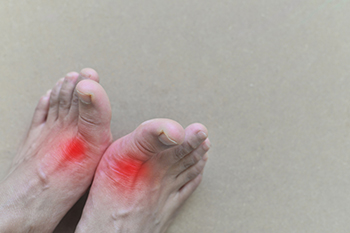
Gout, a form of arthritis, manifests when urate crystals accumulate in the joints, causing intense pain and inflammation. While anyone can develop gout, certain factors increase susceptibility. Men, particularly those over 40 years old, are more prone, as are postmenopausal women. A family history of gout raises the risk, indicating a genetic predisposition. Lifestyle choices also play a pivotal role, and a diet rich in purines found in red meat, seafood, and alcohol can contribute to elevated uric acid levels. Obesity and medical conditions such as high blood pressure or diabetes amplify the likelihood of gout. Dehydration and certain medications may also tip the balance towards crystal formation in joints. The intricacies of gout's causes underscore the importance of proactive measures, including dietary adjustments, hydration, and lifestyle modifications. By understanding the factors and vulnerabilities associated with gout, individuals can take informed steps towards prevention and better management of this often painful condition. If you have developed gout, it is strongly suggested that you contact a podiatrist who can guide you toward effective management and pain relief techniques.
Gout is a painful condition that can be treated. If you are seeking treatment, contact Pedram Aslmand, DPM from Advanced Foot and Ankle Center. Our podiatrist will treat your foot and ankle needs.
What Is Gout?
Gout is a form of arthritis that is characterized by sudden, severe attacks of pain, redness, and tenderness in the joints. The condition usually affects the joint at the base of the big toe. A gout attack can occur at any random time, such as the middle of the night while you are asleep.
Symptoms
- Intense Joint Pain - Usually around the large joint of your big toe, and it most severe within the first four to twelve hours
- Lingering Discomfort - Joint discomfort may last from a few days to a few weeks
- Inflammation and Redness -Affected joints may become swollen, tender, warm and red
- Limited Range of Motion - May experience a decrease in joint mobility
Risk Factors
- Genetics - If family members have gout, you’re more likely to have it
- Medications - Diuretic medications can raise uric acid levels
- Gender/Age - Gout is more common in men until the age of 60. It is believed that estrogen protects women until that point
- Diet - Eating red meat and shellfish increases your risk
- Alcohol - Having more than two alcoholic drinks per day increases your risk
- Obesity - Obese people are at a higher risk for gout
Prior to visiting your podiatrist to receive treatment for gout, there are a few things you should do beforehand. If you have gout you should write down your symptoms--including when they started and how often you experience them, important medical information you may have, and any questions you may have. Writing down these three things will help your podiatrist in assessing your specific situation so that he or she may provide the best route of treatment for you.
If you have any questions, please feel free to contact our offices located in Long Beach, CA . We offer the newest diagnostic and treatment technologies for all your foot care needs.

